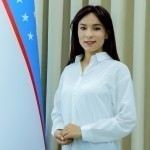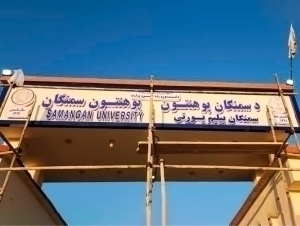Uzbek language as a bridge of influence: Is Uzbekistan doing enough?
Review
−
12 December 2024 29477 15 minutes
Did you notice Putin bringing up the Russian language again during his speech in Astana? On November 27, Russian President Vladimir Putin arrived in Astana for a state visit. The main purpose of the visit was to participate in a meeting of the Collective Security Council and discuss regional and international security issues with member states. Yet, during the visit, Putin referred to Kazakhstan—where Kazakh and Turkic are the state languages—as practically a Russian-speaking country.
"Unfortunately, there are many individuals with their own opinions about what to do and how to do it, often criticizing ongoing processes. This happens both in Russia and Kazakhstan. Such criticism does not always align with the interests of the states involved, including Russia, and is not always constructive. I believe everything possible should be done to strengthen these relations, but under no circumstances should actions be taken that harm our ties," he said.
Have you noticed how, at every meeting, no matter the time, place, or subject, Putin or another Russian official never fails to mention the Russian language? It’s almost as if the shared history between Russia and Central Asia is only briefly acknowledged, while the focus remains on the language. But why is this the case?
For instance, while Putin was extolling the virtues of the Russian language in Kazakhstan, Rossotrudnichestvo announced preparations in Uzbekistan for the 80th anniversary of Victory Day, starting in December. Irina Staroselskaya, head of the agency's Tashkent office, outlined plans for traditional events like the "Memory Garden," "Memory Candle," and "Victory Letter." What compels Russia to prepare six months in advance for May 9?
Russia, which already operates the most foreign educational centers in Uzbekistan and even trains diplomats there, is now planning to establish two more centers. But what is the ultimate goal?
In today’s discussion, we will delve into the concept of "soft power"—Russia's growing influence in Central Asia through language, history, and education policy, and how other nations are reacting and countering this influence. This is becoming a battleground for language and cultural strategies in the region.
Soft Power
States employ two distinct approaches to advance their interests on the global stage: Hard Power and Soft Power.
Hard power involves compelling other nations to act in ways that align with one’s interests, often through sanctions, military interventions, or outright war. In contrast, soft power is the ability to shape preferences and achieve goals by attraction rather than coercion. This approach uses cultural appeal, shared values, and diplomacy to make others adopt a position that ultimately benefits the influencing country.
"If hard power dominated international relations until the late 20th century, soft power has become central in the 21st century. Today, even powerful nations like the United States face limitations in directly influencing others. Consequently, the significance of soft power has grown," says political scientist Sukhrob Boronov.
Key instruments of soft power include language, culture, foreign policy, strategic narratives, and education. Among these, language remains the most effective and widely used tool.
Russia and the Role of the Russian Language
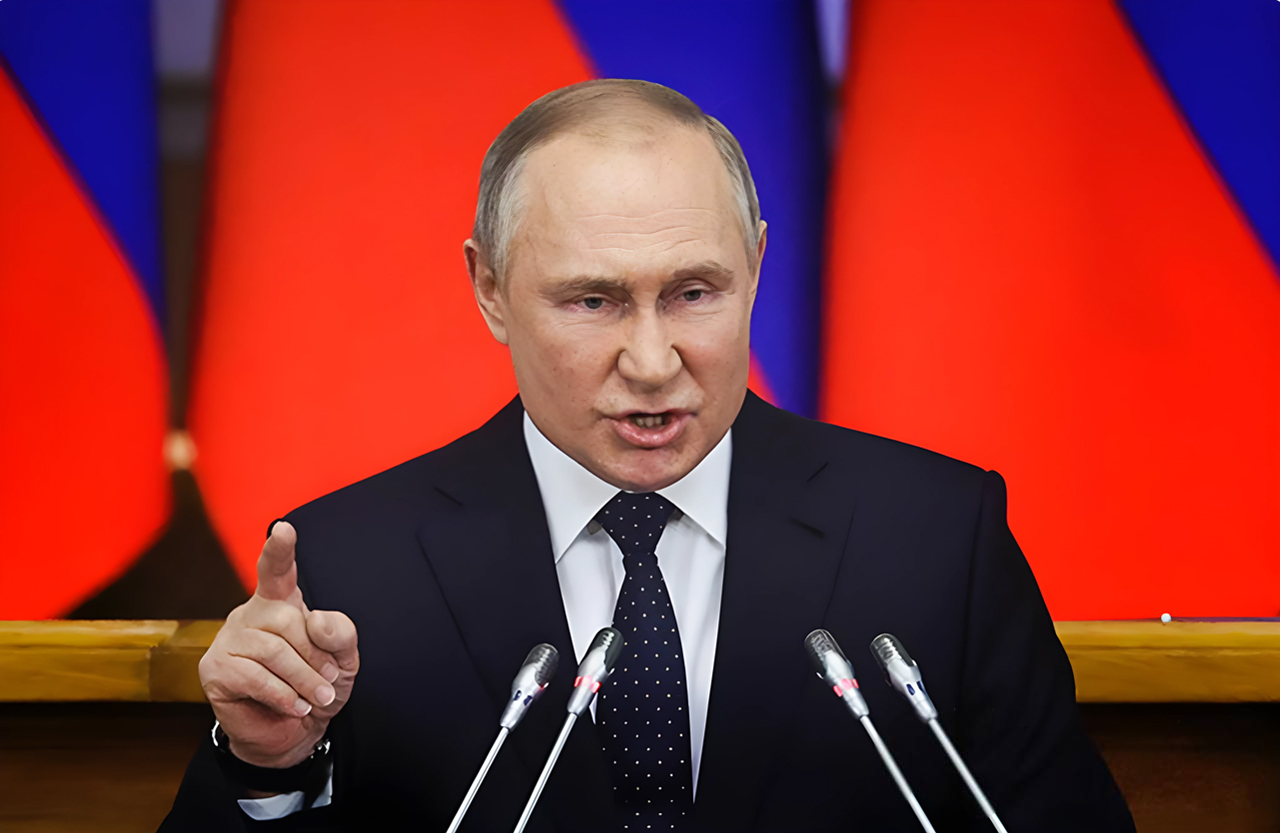
Russia has made no secret of its reliance on the Russian language as a key element of its "soft power" strategy in foreign policy. Russian Foreign Minister Sergei Lavrov has explicitly acknowledged the significant role the language plays, describing it as a powerful and influential tool for Russia.
“Of course, such a great miracle as the Russian language is our very powerful soft power. This is a very useful, open, and positive soft power. Naturally, we organize Russian language courses in friendly countries and establish Russian schools in Central Asia, Azerbaijan, and Armenia, including those created under programs of our Ministry of Education and branches of Russian higher education institutions,” Lavrov stated.
Russia spares no effort in promoting the Russian language abroad. Criticism of the language is met with swift rebuttals from the Russian Foreign Ministry, and attempts to limit its use are not only condemned but can even lead to severe consequences, including conflicts. From the president down to lower-ranking officials, the entire machinery of the Russian state works to ensure the spread of its language. Central Asian nations, including Uzbekistan, often find themselves strongly influenced in matters related to the Russian language.
On October 31, Russian President Vladimir Putin signed a treaty in Uzbekistan on the establishment of an international organization for the promotion of the Russian language. Interestingly, the idea of creating such an organization was first proposed by Kazakhstan's President Kassym-Jomart Tokayev during a summit of CIS heads of state in Bishkek on October 13, 2023.
At that summit, CIS leaders signed a declaration supporting and promoting Russian as a language of interethnic communication. They also agreed to establish the International Russian Language Organization, but little was said about it for almost a year. It wasn’t until October 8, 2024, at the CIS Council of Heads of State meeting in Moscow, that Putin called for all member states to ratify the agreement soon.
Uzbekistan, among the last countries to approve the agreement, ratified it through the Legislative Chamber of the Oliy Majlis on October 18, 2024, and the Senate on October 24. Other signatories include Russia, Belarus, Kyrgyzstan, Kazakhstan, Tajikistan, Turkmenistan, and Azerbaijan. By November 28, during a summit in Astana, Kazakhstan pledged to allocate 43 million tenge to the organization’s budget.
The organization’s stated mission is to enhance the quality of Russian education globally. This includes training teachers and academic staff in "Russian language and literature" and "Russian as a foreign language," as well as creating a reserve of qualified specialists. However, Putin’s primary goal is to solidify Russian as the language of interstate communication—a goal openly admitted by Lavrov.
At the October CIS summit, Lavrov emphasized the importance of raising the status of the Russian language, describing it as a means of fostering cooperation between member states.
"The organization supports and promotes the Russian language as a language of interstate communication. It strengthens comprehensive mutually beneficial cooperation between CIS countries based on principles of friendship, good neighborliness, interethnic harmony, trust, and mutual understanding," the organization’s charter states.
Ironically, Russia, embroiled in a war with Ukraine, promises "interethnic harmony" while pursuing increasingly stringent language policies domestically. Migrant workers in Russia are now required to demonstrate proficiency in Russian. On October 31, Russian Security Council Deputy Chairman Dmitry Medvedev called for the exclusion of immigrant children who do not speak Russian from schools.
“There is a situation often discussed in public – these are schools and other educational institutions. Immigrant children go there without knowing Russian, which affects the overall level of education. This is well known, and it’s time to end this practice,” Medvedev declared following a state migration policy meeting.
Russia's fixation on its language policy stems from a strategic desire to reunite former Soviet states, leveraging the Russian language as a unifying tool. Putin’s intentions are explicit. During the ongoing conflict with Ukraine, Russia's March 7, 2022, draft "Peace Treaty" demanded official status for the Russian language in Ukraine in exchange for halting military aggression.
Russia's aggressive promotion of its language also reflects a decline in its global influence. Russian has fallen from fourth to ninth place among the most widely spoken languages internationally. Outside of Central Asia, fewer countries now view Russian as a viable international language. This decline underscores Russia’s fervent efforts to maintain its linguistic foothold, especially in regions where it still holds sway.
English
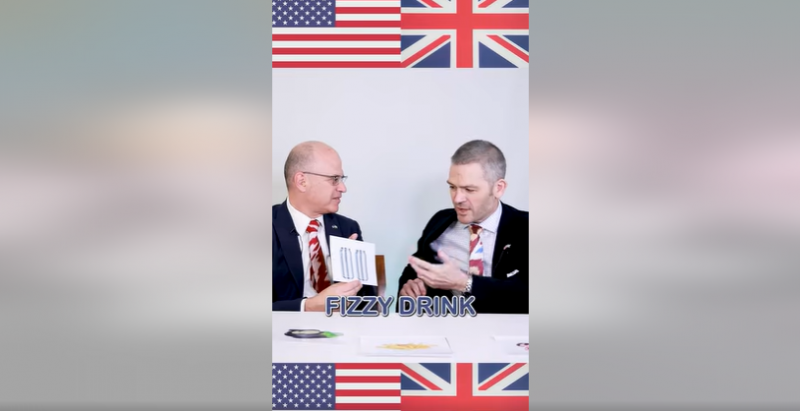
English is the most widely spoken language. Major English-speaking countries such as the United States and Great Britain are also working year after year to promote the development and spread of this language. Unlike Russia, they offer the opportunity to broaden their horizons, work without difficulty in developed countries, and earn more in exchange for learning English. At the same time, they also constantly keep track of which countries are learning English the most. One such calculation was published on November 13 of this year.
According to the 2024 EF English Proficiency Index, the population of Uzbekistan is among the countries with the lowest level of English proficiency. This year, Uzbekistan ranked 98th out of 114 countries. This is lower than last year's result: in 2023, Uzbekistan was in 93rd place out of 113 countries. In turn, the average rating score of Uzbeks in English proficiency also decreased from 442 to 439 (maximum score - 700).
Uzbekistan has been participating in this study since 2018. That year, Uzbekistan ranked 86th out of 88 countries. The results of participants aged 18 and older are taken into account in this study.
The Netherlands, as in previous years, took first place in the ranking. The top ten included Norway, Singapore, Sweden, Croatia, Portugal, Denmark, Greece, Austria, and Germany. Among the neighboring countries, Kyrgyzstan ranked 88th, Afghanistan 95th, Kazakhstan 103rd, and Tajikistan 109th.
However, despite this ranking, the countries of the Commonwealth of Independent States are making efforts to learn English. Usually, this language is seen as an option to save countries from Russian language pressure. For example, in Mongolian schools, English replaced Russian as the main foreign language.
In June of this year, Zelensky, in a fit of anger towards Russia, signed a law strengthening the status of English in Ukraine. While Russian language classes in Uzbek schools are taught for 2 hours a week, English is taught for 3 hours. So, other countries are trying to avoid Russian language pressure as much as possible. The Central Asian countries, no matter how hard they try, cannot get rid of it. That is why they try to use English in this way.
The neighboring countries themselves may not notice the language struggle taking place in the region. But the world is closely watching and is struggling. Turkey too.
Turkey: Common Turkic Language
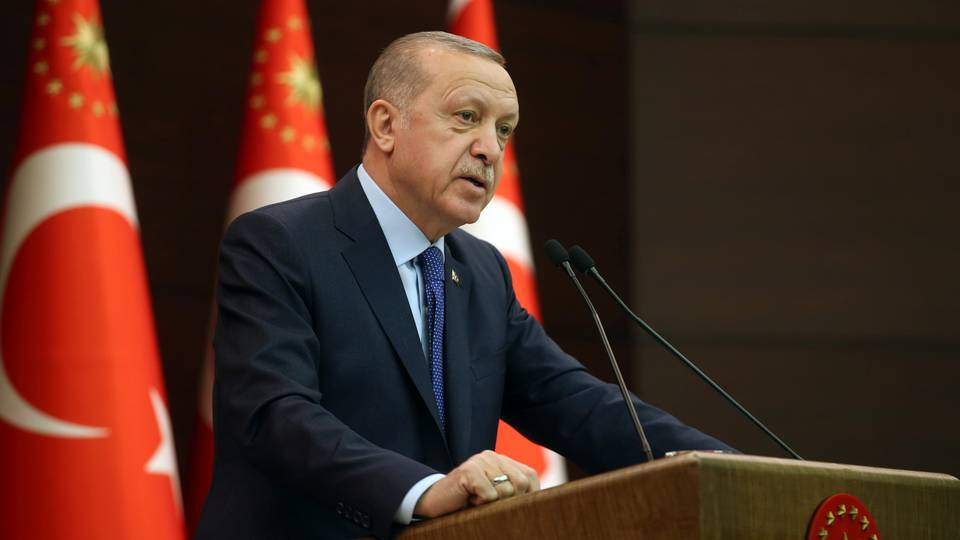
Turkey is trying to unite all Turkic peoples through the Turkish language. To this end, on September 11 of this year, a common alphabet for Turkic countries was approved by the International Turkic Academy and the Society of Turkic Linguists in Baku, Azerbaijan. As we have already mentioned, this alphabet project, consisting of a total of 34 letters, was proposed 33 years ago, that is, in 1991, and was first approved by all Turkic scholars. However, the meeting on September 11 did not remain just a meeting. This topic was raised on November 6 as well. Even when it was raised, it was mentioned by Turkish President Recep Tayyip Erdogan at the 11th meeting of the Council of Heads of State of the Turkic States Organization in Bishkek, Kyrgyzstan. At the summit, which was attended by the heads of state of the five member states of the organization—Turkey, Azerbaijan, Kazakhstan, Kyrgyzstan, and Uzbekistan—as well as the observer state of the organization, Hungary, Erdogan called on the brotherly countries to switch to a single alphabet as soon as possible. He said that Azerbaijan, Turkey, and Northern Cyprus are ready to switch to this alphabet. Erdogan is waiting for the decision of other Turks.
“Efforts and work in this regard should be intensified. By overcoming all difficulties and resolving mutual problems, we can sow the historical seeds of the Turkic world together. I believe in this. If we cooperate within the framework of the Turkic States Organization, I believe that change is necessary. Turkey, Azerbaijan, and Northern Cyprus are ready to switch to a single Turkish alphabet. We are waiting for the decisions of Kazakhstan, Kyrgyzstan, Uzbekistan, and Turkmenistan," Erdogan told his colleagues.
Kazakh President Kassym-Jomart Tokayev believes that for Turkic peoples to unite in language, they must first unite in the information space. He proposed to transfer cable TV channels to each other to create a single information space for the Turkic world. This means that Kazakh TV channels can be freely watched in Uzbekistan, and Uzbek TV channels in other Turkic countries. According to Tokayev, this will bring Turks even closer together.
But these things will not happen by themselves. This requires a lot of money. Neither Kazakhstan, which wants to allocate a million tenge for the development of the Russian language, nor other Turkic countries have made a specific bet on the development and unification of their common languages. This is exactly what Azerbaijani President Aliyev said at the meeting.
The unification of Turkic speakers has even reached such a level that they even want to create a common anthem. So, who came up with this initiative? Turkey again.
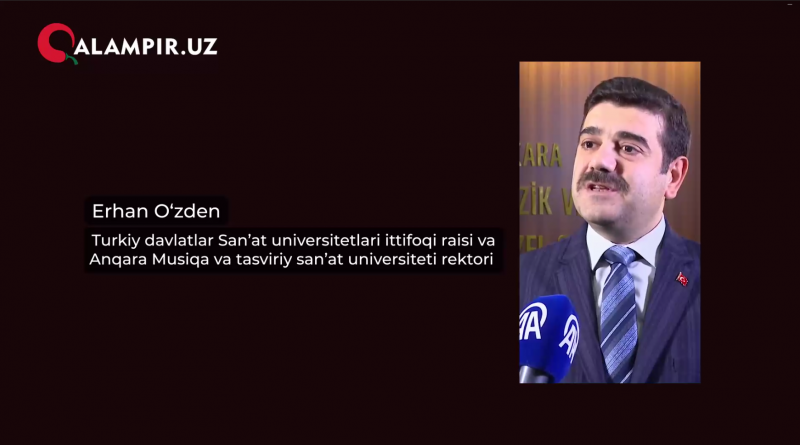
Erhan Özden, Chairman of the Union of Art Universities of Turkic States and Rector of Ankara University of Music and Fine Arts, said that today the work on creating a common anthem uniting the Turkic states has already begun. This anthem will reflect the unique culture of the Turkic peoples in words and music, inspired by the rich history of the Turkic peoples.
According to Erhan Özden, the anthem will be written for ceremonies and will reflect the national and spiritual values that unite the Turkic peoples. Its words and music will be developed by a group of experts, in which understandable and logical words will be selected for everyone.
It is noted that the Turkic states are also working on creating a general and encyclopedic dictionary in the field of art. This dictionary will collect art terms used among the Turkic peoples and will serve to create a unified terminology in the future. The dictionary will be organized into separate chapters for different art forms and will show the origin of terms and their use in the culture of the Turkic peoples.
It is reported that the dictionary is expected to be ready in 1-2 years, and the anthem will be ready even earlier.
So, what is the need for all this—the development of Turkic languages, the alphabet, the anthem, and dictionaries? The fact is that today, when the Turkic peoples, who are trying to unify their alphabet and language and who claim to be descendants of the Turks, meet, they still communicate in Russian, not in their languages. Turkey does not like this. It seems that it wants to use “soft power” to eliminate this.
Uzbek: Does the Country Have "Soft Power"?
Does a country with a population of 37.5 million today have “soft power”? Experts say no.
Uzbekistan. Uzbek
The question arises: what role does “soft power” play in Uzbekistan’s future? According to Suhrob Boronov, a public figure and expert, it is time for Uzbekistan to develop a dedicated “soft power” strategy. Currently, the country lacks such a framework, and while the necessary resources exist, the mechanisms to implement them do not.
Despite the potential, Uzbekistan has yet to leverage its cultural and linguistic strengths as tools of influence. The Uzbek language, though often overlooked on the global stage, holds significant potential as a driver of soft power. As the second-largest Turkic language after Turkish, Uzbek is not only widely spoken but is also central among Turkic languages, serving as a bridge of understanding across the Turkic-speaking world.
More than 60 million people worldwide speak Uzbek, making it one of the most prominent Turkic languages. This includes speakers not only in Uzbekistan but also in Eastern Turkmenistan, Tajikistan, northwestern China, and northern Afghanistan:
- Afghanistan: 2.9–3.2 million
- Tajikistan: 1.3–2 million
- Kyrgyzstan: 1.2 million
- Kazakhstan: 800,000
- Turkmenistan: 600,000
Despite these impressive numbers, Uzbekistan has made minimal efforts to support its linguistic diaspora. Uzbeks living abroad, particularly in regions like Afghanistan, lack access to Uzbek media or educational resources. According to Junaydbek Batyr, a member of the Uzbek community in Afghanistan, many learn Uzbek informally from their families, as no structured resources are available.
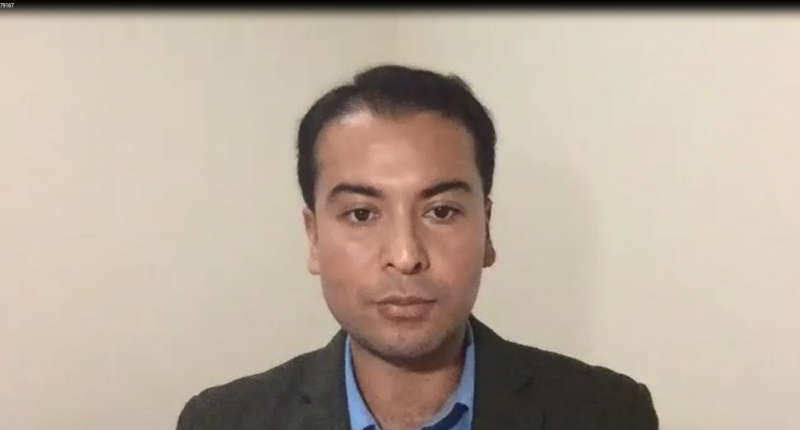
While other nations invest heavily in preserving and promoting their languages abroad, Uzbekistan lags. The Department for the Development of the State Language has clear goals, such as creating Uzbek language textbooks, electronic learning materials, and specialized courses for international learners. However, these measures have yet to be implemented effectively. Even neighboring Afghanistan, with a sizable Uzbek-speaking population, lacks access to these resources.
Newton Menow, a former chairman of the American Federal Commission, once stated, “$1 spent on ideas is worth $100 spent on bombs.” In an era of rapidly shifting global politics, cultural influence can provide a vital edge. For Uzbekistan, embracing this philosophy means recognizing the Uzbek language as a valuable tool for soft power.
The ongoing “soft power” battle in Central Asia underscores the urgency for action. The region is increasingly a battleground for cultural and linguistic influence. Countries like Turkey are actively using language as a unifying force for Turkic peoples, while others like Russia continue to assert their influence. If Uzbekistan does not prioritize the global promotion of its language and culture, it risks falling behind in this struggle.
The Uzbek language has the potential to become a cornerstone of Uzbekistan’s soft power, uniting Uzbeks abroad and promoting the nation’s culture globally. However, this requires not only resources but also strategic vision and consistent effort.
The conversation around Uzbekistan’s soft power strategy highlights a critical need for introspection and action. If Uzbekistan fails to act now, the opportunity to elevate its language and culture on the global stage may slip away.
What do you think? Can the Uzbek language serve as a tool for Uzbekistan’s soft power? Which language should take precedence in the country’s cultural and political strategy? With over 60 million speakers, the future of Uzbek’s influence depends on decisive action today.
Live
All